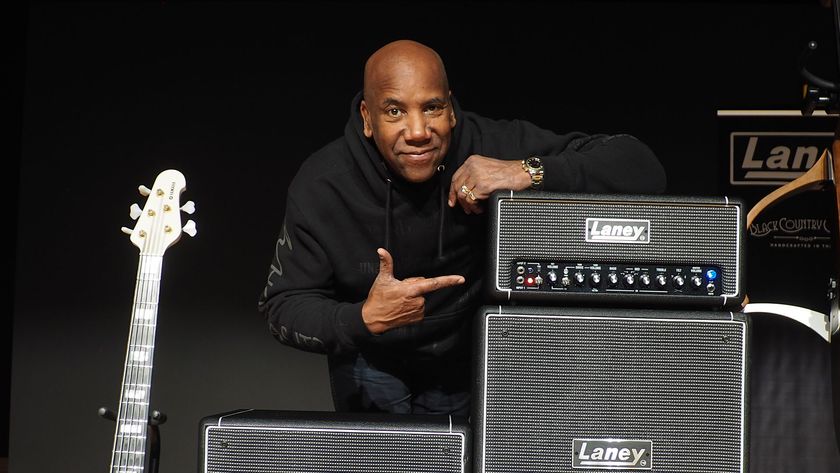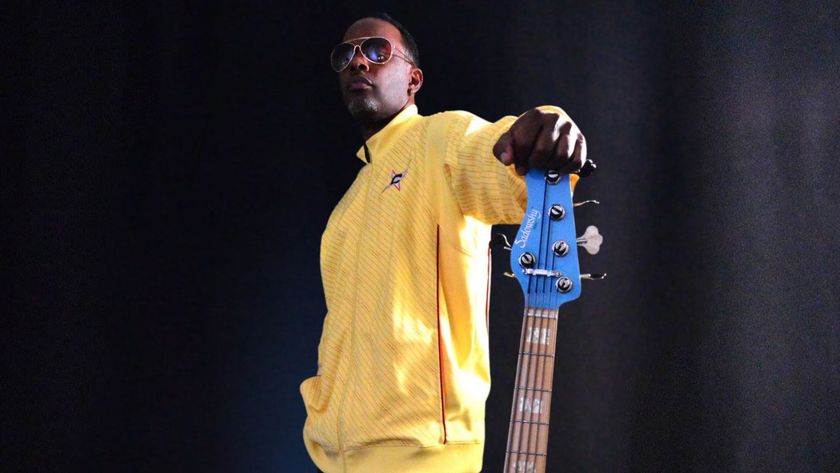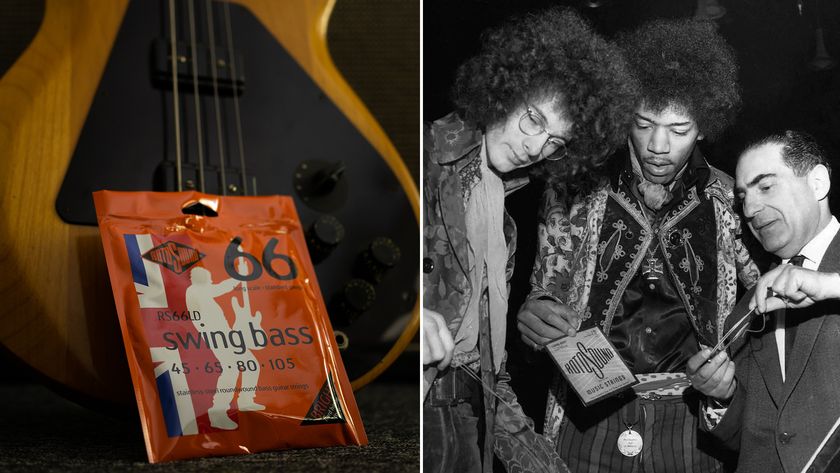Interview: Tom Hobden of Noah and the Whale

I recently stopped in at the Fillmore to check out the fabulous lads in Noah and The Whale. While I was drawn in by the charisma and talent of the entire band, it was violinist Tom Hobden that really caught my eye. Hobden often took the role as the lead player, performing memorable riffs with dramatic flare.
Hailing from Twickenham, London, England, this quintet formed in 2006 and consists of Charlie Fink (vocals, guitar), Tom Hobden (Violin/keys), Matt Owens (bass guitar), Fred Abbott (guitar/keys), and Michael Petulla (drums). Currently touring in support of their fourth release, Heart of Nowhere, their next step is a UK stint with Vampire Weekend in November.
Here I talk to Hobden about what it’s like to take this non-traditional role with his instrument in a rock band.
I’ve never seen a violinist in a band like yours be so well received.
Yeah, it’s kind of unusual. It’s quite a good thing for me. People remember me because I am a bit of a rare entity in a rock band.
Did you start playing violin in school and later migrate into more popular music?
Yeah, I did. I used to play classical violin when I was a kid and a teenager and stuff. When I was about 16 years old I started dabbling in other genres just out of curiosity, and I was lucky. We had a very musical bunch at the school I went to in London. Actually, in my group was Winston [Marshall], he plays banjo for Mumford & Sons. And he started a band here when I was 16 -- a bluegrass band, really. It was pretty raucous. It was like a 9-piece country-rap band with like a 25-year-old New Jersey rapper. He looked a little bit like Jesus.
Get The Pick Newsletter
All the latest guitar news, interviews, lessons, reviews, deals and more, direct to your inbox!
Do people listen to bluegrass in London?
No! Not at all. We were definitely starting a trend! Good times.
When you started playing with a band and you had to amplify your instrument, did you run into any issues with how to do that?
Yeah, huge issues. The thing with playing classical violin is that you have a finely tuned ear. It was very taxing. The instant drop in quality of tone. It’s a hard thing to get past. I experiment a lot with ways I can amplify an instrument. You can start off with these small contact pickups that you stick onto the bridge. And there are all kinds of pickups you can try. The easiest way to go is to get the pickup that is built into the bridge of the violin. And that sounds the very best. I tried a few of them over the years, but I finally found a good one. Actually, It’s from an American store, I think, in Colorado, I found it on the Internet. I sent off for one and it’s really the best I got so far. I’m sorry, I struggle to remember the name.
It seems more folks are taking these instruments that they learn as a kid and bringing them into the music that they love.
You know, I think you’re absolutely right. I think people are more brave and more bold about using their instrument in more mainstream things like rock bands.
Tell me about your instrument.
It’s a French violin I think from 1816. It was made by a guy named Nicolas. It’s really nice, actually. It’s got quite a sweet tone. Some other violins have a rich and larger sound. But I really like this one, and you don't need that when you amplify it, anyway. .
Do you tour with 5 or 6 violins in the same way that guitar players have multiple guitars?
No, no, no. No way! I’m not egotistical like that, haha! I think it is an ego thing, you know? They go out with these huge flight cases.
That’s funny. Well, sometimes it’s because they might use alternate tunings. Do you use any special tunings on your violin?
No, no, no.
When you guys write, do you do it as a team or is there one person that mostly spearheads the writing?
For this album, Charlie has been the main singer-songwriter. This time round we started tackling writing together. None of us had experience before. It’s quite strange at first. The whole lyric thing for me is just a no-no. Charlie still writes all the lyrics. That’s the only way we can do it. It just comes out sort of piecemeal and slightly superficial, you know? So, yeah, we had a couple of stints writing. One in London and in another space we went to which was an amazing little garden studio, though I can’t even really describe it, on a very remote island off the coast of Essex, kind east of London.
Really?
Yeah, it’s cool. Osea Island. The history is intriguing. I can’t remember the exact details, but at some point it had been bought by a brewery, I don’t know who. Legend goes on a night out in east London, the guy witnessed the drunks stumbling out at closing time, you know, going home and being a mess, falling around on the street. And he kind of got a guilt trip to do something about it. And, I think he set up, it must have been some kind of rehab on the island, on this island he bought.
And it’s bizarre. I think at some point he brought loads of Australian animals. There are like wallabies roaming the grounds. Very, very surreal. But yeah, definitely worth looking up. It was great for us because you can only get access to get on or off twice a day. It was very, very remote. It was really good. We went in for three weeks and came up with most of the record.
We had a pretty miserable summer last summer in England last year so we thought let’s head to the south of France and did more of it there.
Yeah, because the south of France is so hard to take.
Yeah, it worked out well for us. We tried some phenomenal wine!
It seems like your album has been incredibly well received and you’re touring and it’s been going great. What’s next for you guys?
We’re finishing up this leg and we’ll be back home in November for a short arena tour with Vampire Weekend. It’ll be nice hang out with those guys again. Back in 2008 or so, I remember doing a lot of shows with them in the early days when we were starting out. They’re really nice guys. I feel their new record is actually brilliant. I’m a really big fan. So, that’ll be cool. And then Christmas at home, I think. And then on to the new year.
Do you have any advice for young violinists who might want to follow in your footsteps?
Advice? I think with violin, a lot of people pick it up when they’re young and for whatever reason, when they get to kind of a teenager, they just give it up. I think it’s because it’s an instrument that does take a lot of hours before you can make a sound that even you aren’t repulsed by! I guess my advice, my real advice, would be to stick to it. Even if it seems not so cool or whatever at school. Other kids are picking up guitar, but you should hold out for the long game and stick with it.
Find out what’s next for Tom and Noah and the Whale at www.noahandthewhale.com
Laura B. Whitmore is the editor of Guitar World's Acoustic Nation. A singer/songwriter based in the San Francisco bay area, she's also a veteran music industry marketer, and has spent over two decades doing marketing, PR and artist relations for several guitar-related brands including Marshall and VOX. Her company, Mad Sun Marketing, represents Dean Markley, Peavey Electronics, SIR Entertainment Services, Music First, Guitar World and many more. Laura is the founder of the Women in Music Network at thewimn.com, producer of the She Rocks Awards and the Women's Music Summit and co-hosts regular songwriter nights for the West Coast Songwriters Association. More at mad-sun.com.







Laura B. Whitmore is a music industry marketing veteran, music journalist and editor, writing for Parade.com, Guitar World, and others. She has interviewed hundreds of musicians and hosts the She Rocks Podcast. As the founder of the Women’s International Music Network, she advocates for women in the music industry and produces the annual She Rocks Awards. She is the Senior Vice President of Marketing for Positive Grid, making the world safe for guitar exploration everywhere! A guitarist and singer/songwriter, Laura is currently co-writing an album of pop songs that empower and energize girls.

“It’s always in the back of your mind saying, what can we improve on? What would I do? What would I dream of in an amp?” How Clapton collaborator and session great Nathan East is teaming-up with Laney on a signature amp unlike any other

“Walk Like an Egyptian was so silly. But solid players have asked, ‘What are you playing at the end?’” Vicki Peterson sees herself as “a bit of a hack player,” but she still made guitar-pop history with the Bangles – and guested with Tom Petty







